Gender Differences in Survival among Adult Patients Starting Antiretroviral Therapy in South Africa: A Multicentre Cohort Study
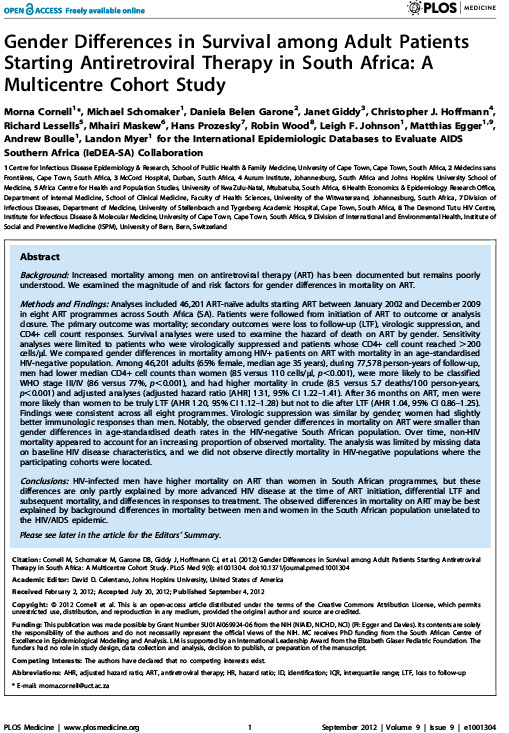
Background Increased mortality among men on antiretroviral therapy (ART) has been documented but remains poorly understood. We examined the magnitude of and risk factors for gender differences in mortality on ART. Methods and Findings Analyses included 46,201 ART-naïve adults starting ART between January 2002 and December 2009 in eight ART programmes across South Africa (SA). […]
Does the success of HIV treatment depend on gender?
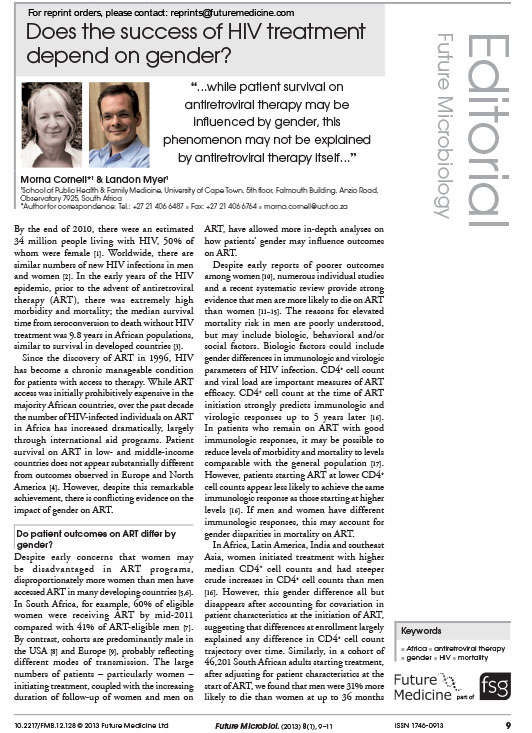
By the end of 2010, there were an estimated 34 million people living with HIV, 50% of whom were female. Worldwide, there are similar numbers of new HIV infections in men and women. In the early years of the HIV epidemic, prior to the advent of antiretroviral therapy (ART), there was extremely high morbidity and […]
Public health blindness towards men in HIV programmes in Africa
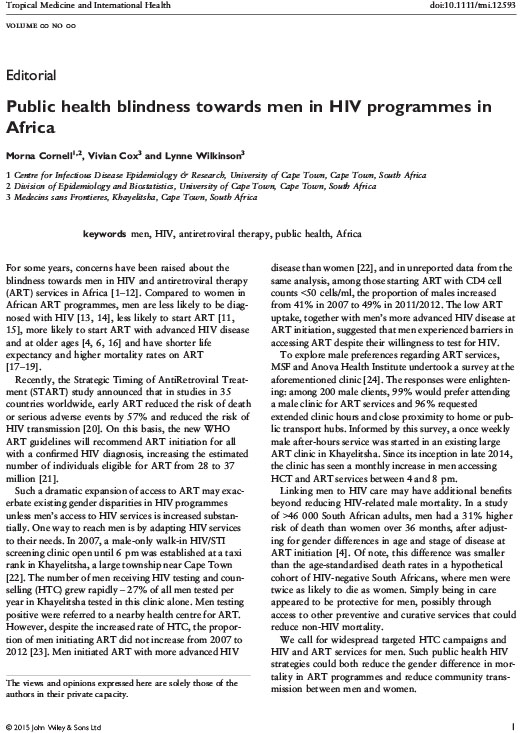
For some years, concerns have been raised about the blindness towards men in HIV and antiretroviral therapy (ART) services in Africa. Compared to women in African ART programmes, men are less likely to be diagnosed with HIV, less likely to start ART, more likely to start ART with advanced HIV disease and at older ages […]
Gender and the Use of Antiretroviral Treatment in Resource-Constrained Settings: Findings from a Multicenter Collaboration

Aims: To compare the gender distribution of HIV-infected adults receiving highly active antiretroviral treatment (HAART) in resource-constrained settings with estimates of the gender distribution of HIV infection; to describe the clinical characteristics of women and men receiving HAART. Methods: The Antiretroviral Therapy in Lower-Income Countries, ART-LINC Collaboration is a network of clinics providing HAART in Africa, Latin […]
Mass HIV Treatment and Sex Disparities in Life Expectancy: Demographic Surveillance in Rural South Africa
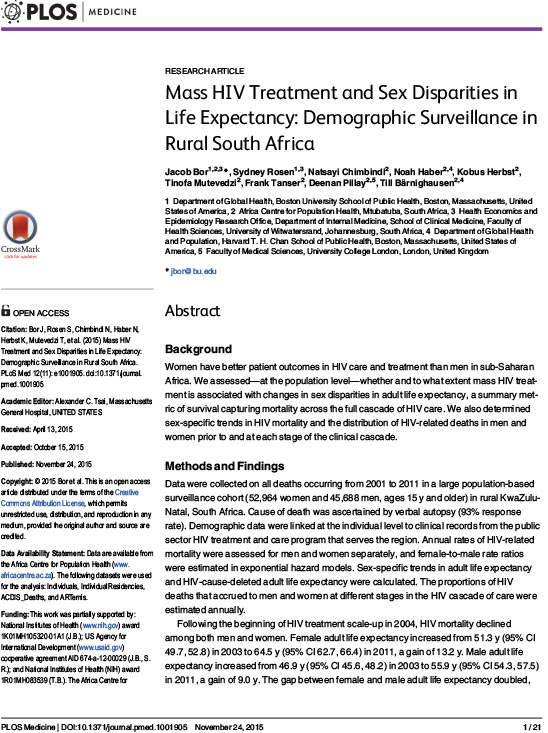
Background Women have better patient outcomes in HIV care and treatment than men in sub-Saharan Africa. We assessed—at the population level—whether and to what extent mass HIV treatment is associated with changes in sex disparities in adult life expectancy, a summary metric of survival capturing mortality across the full cascade of HIV care. We also […]
Who starts antiretroviral therapy in Durban, South Africa?… not everyone who should
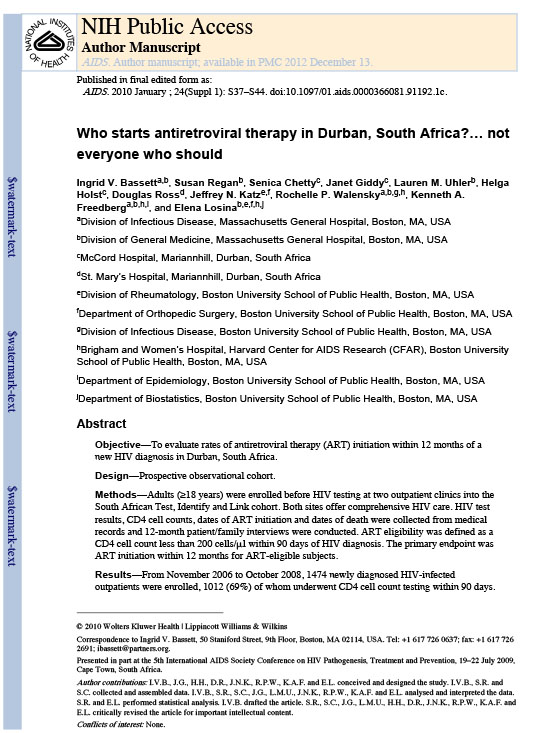
Objective To evaluate rates of antiretroviral therapy (ART) initiation within 12 months of a new HIV diagnosis in Durban, South Africa. Design Prospective observational cohort. Methods Adults (≥18 years) were enrolled before HIV testing at two outpatient clinics into the South African Test, Identify and Link cohort. Both sites offer comprehensive HIV care. HIV test […]
Are there differences in disease progression and mortality among male and female HIV patients on antiretroviral therapy? A meta-analysis of observational cohorts
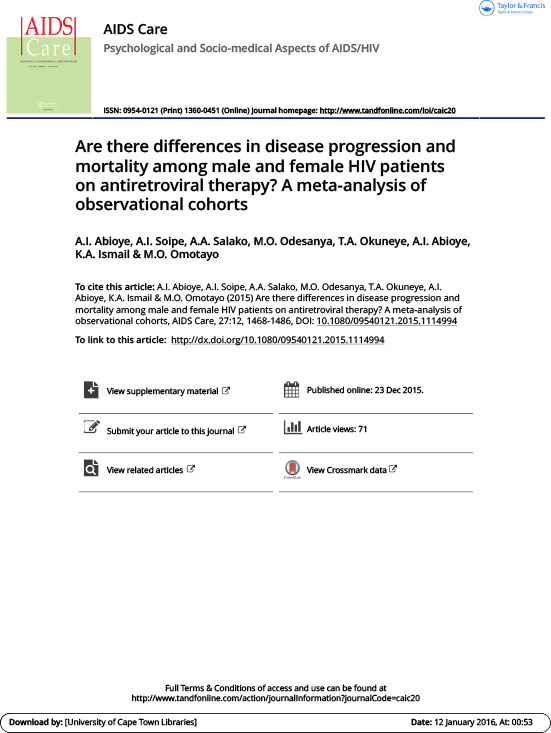
Studies examining the sex differences in morbidity and mortality among HIV/AIDS patients have yielded inconsistent results. We conducted a meta-analysis of sex differences in disease progression and mortality among HIV/AIDS patients. Medical literature databases from inception to August 2014 were searched for published observational studies assessing sex differences in immunologic and virologic response, disease progression […]
Improving health with programmatic, legal, and policy approaches to reduce gender inequality and change restrictive gender norms
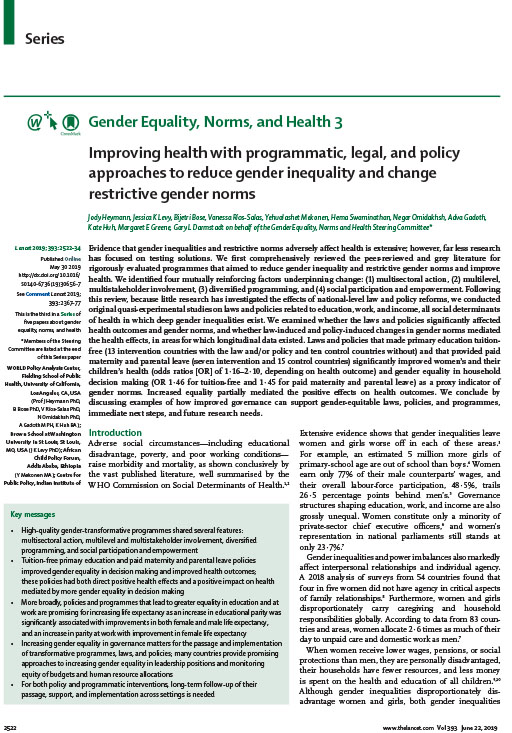
Evidence that gender inequalities and restrictive norms adversely affect health is extensive; however, far less research has focused on testing solutions. We first comprehensively reviewed the peer-reviewed and grey literature for rigorously evaluated programmes that aimed to reduce gender inequality and restrictive gender norms and improve health. We identified four mutually reinforcing factors underpinning change: […]
Gender norms and health: insights from global survey data
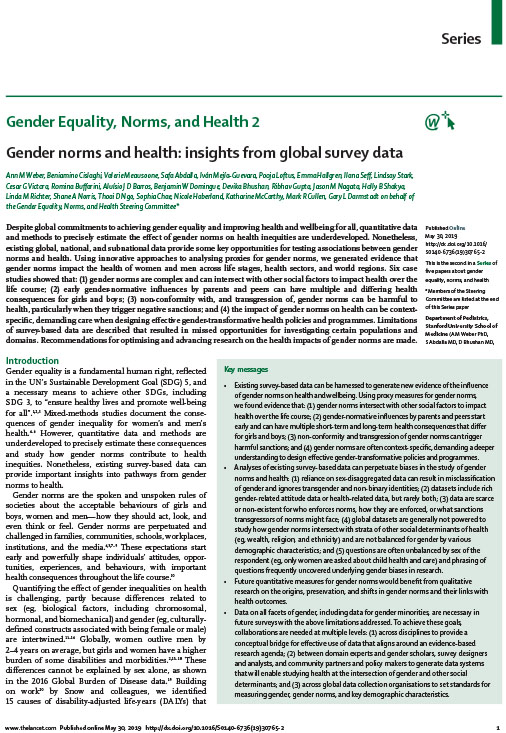
Despite global commitments to achieving gender equality and improving health and wellbeing for all, quantitative data and methods to precisely estimate the effect of gender norms on health inequities are underdeveloped. Nonetheless, existing global, national, and subnational data provide some key opportunities for testing associations between gender norms and health. Using innovative approaches to analysing […]
Gender inequality and restrictive gender norms: framing the challenges to health

Gender is not accurately captured by the traditional male and female dichotomy of sex. Instead, it is a complex social system that structures the life experience of all human beings. This paper, the first in a Series of five papers, investigates the relationships between gender inequality, restrictive gender norms, and health and wellbeing. Building upon […]


